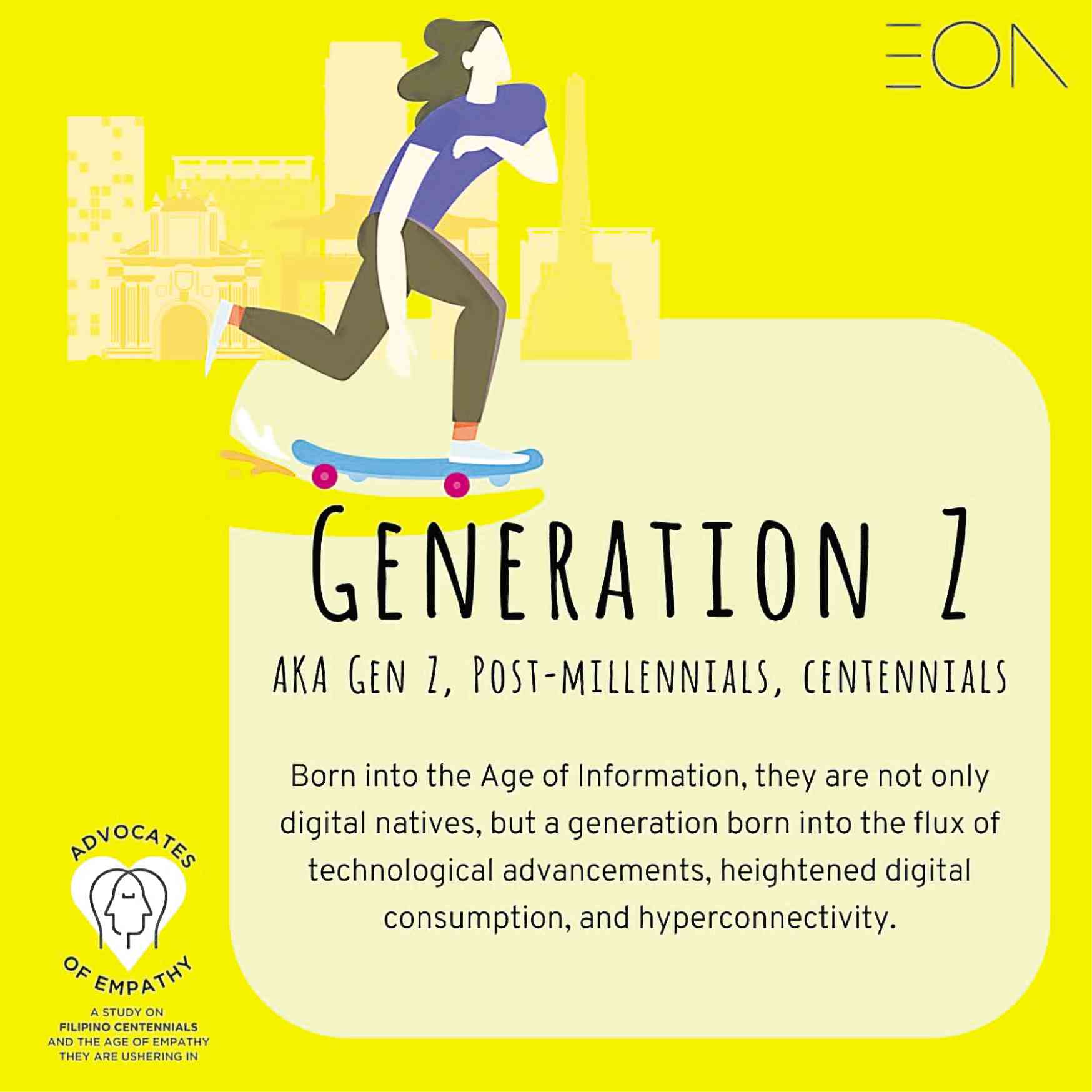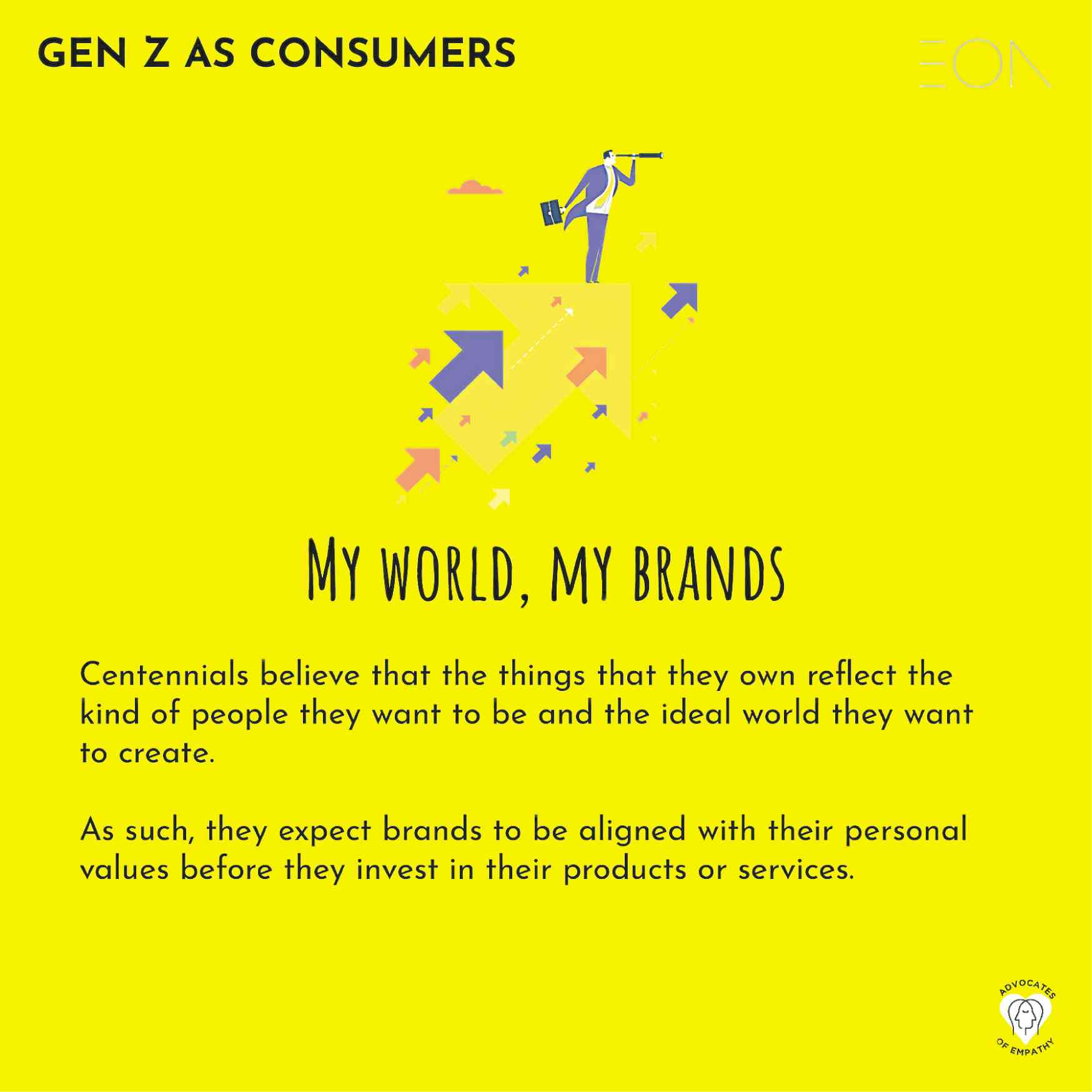Move over, millennials, here come the centennials
Move over, millennials. Here come the centennials, the consumer powerhouse that is expected to account for two of five consumers by next year.
Defined as those born from 1996 to 2010, the centennials, or Generation Z, grew up fully
immersed in the digital world and used to the spread of information at hyperspeed. To them, the internet is not a wonder to behold but a reality that is taken for granted, much like electricity.
As such, they are deemed unique in their behavior mind-sets, attitudes and thought processes, and a market apart from their predecessors—the much-studied millennials.
According to the Advocates of Empathy study on Filipino centennials by the research and analytics team of communications specialist Eon, Generation Z have an acute sense of interconnectedness due to their exposure to massive amounts of information.
Because of this, the exposure of the centennials to a wide range of sentiments has positioned empathy or concern for their fellow man “at the very core of their aspirations, attitudes, beliefs and experiences.”
In selecting products and services, centennials, the oldest of whom have already entered the workforce, tend to prioritize functionality and affordability, and are not quickly persuaded by brands’ positioning and messages. They turn to reviews of actual product or service users, trusting the feedback of regular people over those of so-called influencers.
Centennials, who are exposed to a whole slew of information online, are less likely to be swayed by the power of advertising. They skip commercials and see ads as spins, according to the Eon study.
But just like the millennials, centennials still see the emotional appeal that ads can create and see them as effective ways to reinforce brand awareness.
Centennials, who grew up just as mobile phones became more powerful, affordable and thus ubiquitous, also believe that the things they own reflect the kind of person they want to be and the ideal world they want to create for themselves. Thus they expect brands to be aligned with their personal values before they invest in their products or services.
Given this, they prefer products that are produced by environmentally compliant manufacturers as they put a high priority on environmental sustainability. There are still those who are influenced by big brands, and they buy clothes and consume products known by their friends and classmates, but still, being environment-friendly is a top factor that influences their buying decisions.
Indeed, centennials tend to believe “that the world needs to be saved.”
These findings are part of the results of the Eon study culled from a combination of surveys and focus group discussions among public and private senior high school students, as well as freshmen and sophomore university students in Metro Manila and other parts of Luzon. Quantitative data were gathered from 410 survey respondents, and supplemented with qualitative information from five focus group discussions.
The responses from the respondents also revealed that Generation Z put a premium on individuality and have a desire for uniqueness. They yearn to stand out from the sometimes overwhelming crowd that they interact with online. It’s about looking for the unique “me.”
“They claim to like things in different ways and don’t subscribe to trends. For example, when it comes to music, they’re more about personalized playlists than the Top 100 hits,” the study said.
And unlike their millennial older siblings, who place a higher premium on independence, Filipino centennials still see the importance of parents, according to the Eon study, seeing them as their “greatest influencers.”
As for aspirations, centennials studied in the survey said they want to, among others, travel the world and seek adventures, make a difference in the community or country, create something that will contribute greatly to the world, have a lot of free time, help others in need, have a successful or high-paying career or profession and then eventually buy their own home.
Given these general characteristics that define the centennials, brands and businesses are advised to consider veering away from the typical image of the “rebellious” youth since Generation Z seem not to be born to be wild.
And since Generation Z live in a hyperconnected world and used to everything digital, they are now craving for a meaningful life outside the online world. They know that there is more to life than what they see on social media.
“Brands should therefore consider different touch points apart from social media marketing in order to build connections with them,” the Eon study said.

